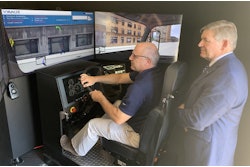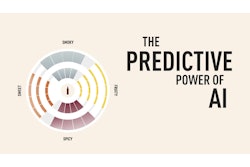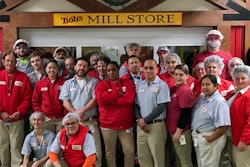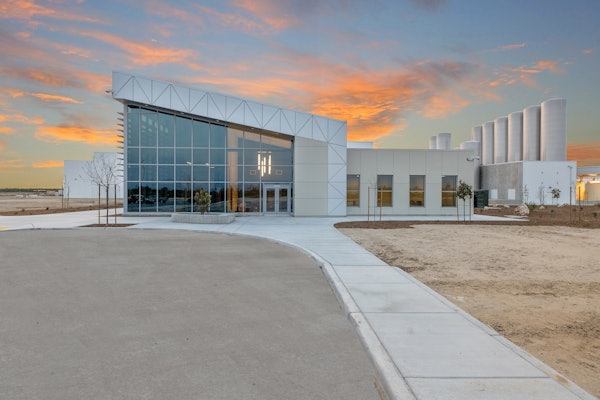Much of how society thinks about each generation is made up and not data-driven, according to unPACKed with PMMI guest Dr. Jessica Kriegel. This Workplace Culture Expert explains how to avoid putting people in generational and stereotypical boxes at work. Instead, she provides guidance for fostering a culture that creates an environment where people want to work for you because, as we all know, the push for talented employees is at an all-time high. The days of potential recruits needing to sell themselves to companies is in the rearview mirror; today's worker wants companies to sell them on why they need to work for your company. It's jarring for the old guard in the packaging and processing industry, but one that breeds discussion.
To subscribe, rate, review and find more unPACKED podcast episodes, visit pmmi.org/podcast or find us on Apple podcasts, Spotify or iHeart Radio.
 | Read the full transcript below |
Sean Riley:
Now with all the fancy introductions out of the way, we are very happy to welcome Dr. Jessica Kriegel to the podcast. Welcome, Doctor.
Jessica Kriegel:
Thank you so much for having me.
Sean Riley:
You are here at the ELC with PMMI, and your expertise is culture. And it's a broad term, obviously. So I'm interested to hear from your point of view how you define it, what is culture?
Jessica Kriegel:
It's a great question. I think that the way that organizations have talked about culture and defined culture has evolved in recent years, because the nature of business is changing and therefore the nature of how we connect in business is changing.
Jessica Kriegel:
Right now the way that we should be looking at culture is through the lens of what is the shared experience of being on the journey with this company as our employer, essentially. It's the human experience of being an employee at your company? What is that? And how can we identify the moments in the journey that matter that we can then craft intentionally? And that's essentially the breaking down of the process of crafting culture and transforming culture, which is looking at the experience moment by moment so that you can actually transform what the experience is.
Sean Riley:
Interesting. Okay, so then I guess from that point of view, is the culture sort of everybody's responsibility? Is it the employer's responsibility? Is it the employee's responsibility? Especially in something like manufacturing, which is a unique industry, who takes on that burden?
Jessica Kriegel:
It's a great question. It's a shared responsibility, we are all co-creating the culture together. Because my experience is made up of my interaction with my colleague, as well as my interaction with my boss, and my interaction with the processes and structures and systems that are set up by the leadership of the company. Ultimately it's everyone shared responsibility to create culture.
Jessica Kriegel:
However, I still do believe that there's a responsibility that starts at the top to drive what direction culture should be going in so that we all know what we're aiming for. It's the why. Why are we here? What are we doing here together? And what are the expectations of me as an employee?
Jessica Kriegel:
It's certainly most heavily on the organization and the leadership specifically. It's not something that's run by HR, even though it often gets associated with HR. HR can certainly have a massive impact, but without the leadership's entire team being bought in we really aren't going to be able to control culture without the rest of the leaders. And then it's up to every employee to show up according to the culture, expectations and norms that we're trying to co-create.
Sean Riley:
Okay. Again, I'm going to keep looking at this from we're in packaging, we're in processing, we're in the manufacturing sector, so it's a little bit different than the typical corporate setting.
Sean Riley:
And how has this evolved and how has it changed to where manufacturing can keep up with the expectations of what this generation that's now coming into the workplace, and Generation X and the people in between, what they're expecting out of a culture. Did that make sense or is there a better way I could word that for you?
Jessica Kriegel:
I wrote a book about generational dynamics in the workplace years ago, and I know that you recently had Jason Dorsey on the podcast as well, and he's a generations expert. And one of the things that we both agree on is that so much of the way that we think about each generation is made up. It's not data-driven. We are essentially stereotyping a lot when we're talking about what millennials want, and even what baby boomers want or expect. So much of that is really just anecdotal information and assumptions that we're making about people based on these really broad definitions of their age bracket.
Jessica Kriegel:
The first step is we have to look beyond the generation and actually understand the people within this organization. What are their expectations, what are their needs? That's why we have to elevate the voice of the employee. There are employee engagement surveys, which obviously a lot of people are doing. I would say that there're probably more advanced ways of elevating the voice of the employee, which we can talk about. But ultimately it's about getting deep into what it is that your employees want.
Jessica Kriegel:
And what I will say, in my research and the work that I've done with the organizations that I've worked with, at their core everyone wants the same thing. It's the same thing that we've all wanted since ancient times. It's the thing we've all been seeking in our lives as humans. It's the meaning of life, it's what meaning do we have and what's driving us. We want to feel whole, we don't want to feel fractured and disconnected. We want to feel like we understand our whole selves. And we want to feel connected, connected to our family, to each other, to something bigger than ourselves.
Jessica Kriegel:
Those are, at their essence, the three core things that every employee wants. What we're seeing now is those needs and those desires and those essential human drivers for us as people, they're showing up in the workplace more than they have before. And the reason is because the lines between our personal life and our work life have started to blur a little bit with COVID and so on. A lot of people are now working more flexibly. Even the people who have to go into a location to do their work are demanding flexible work options, in terms of what time they can go into work and so on. Because they're realizing that maybe there's more that they didn't realize was as important to them before COVID. Now they're doing a gut check and saying, "Yeah, you know what, actually it is important for me to be able to have breakfast with my kids," or to be able to go to the soccer game.
Jessica Kriegel:
And so it's allowing people to show up as their whole selves to allow them to feel connected to something and to make sure that they understand the meaning of what they're doing. And allowing all of that to authentically bubble up to the surface and talk about the whole human.
Sean Riley:
Interesting, I guess, I'm also trying to look at it from the other point of view too as we talk about culture. There might be the ... I don't know what the word I'm trying to look for, but basically the people that are in charge had to do it a certain way to become the people in charge. And I don't want to use the word resentment, but there must be some hesitation on their end to say, "But we all did it this way and this is how it's always been. And this is the culture that we came up with and it worked just fine."
Sean Riley:
How do you break through that? And how do you flip that to understand that it isn't as simple as, "Well, this is what I had to do." Pull yourself up by your bootstraps kind of thing.
Jessica Kriegel:
Yeah. I would say that it starts with a certain level of acceptance. Because it worked just fine in the past, is it working now is the first question I would ask.
Sean Riley:
Right.
Jessica Kriegel:
And if it's not working now we can battle that, and we can be upset about that, and we can have frustration and resentment all we want, but sooner we get to acceptance that things are different now and we have to do it differently, the sooner we can start to be problem solvers. And the sooner we can start to be a little bit more connected to each other.
Jessica Kriegel:
And it speaks to where we started, which is that we cannot see people through the lens of the stereotypes we hold about them. We have to see people through the lens of where they are now. And I would also argue that a lot of these changes, they're not changes that the millennial or the Gen Z generation are bringing forth to the workplace. They're changes that have affected every generation. And everyone is looking differently at the workplace now, regardless of generation, because the expectations of work are different.
Jessica Kriegel:
And so it's easy to blame the younger generations for changes in societal norms. But I will quote my book from 2,500 years ago, Socrates was complaining about the younger generations of his time. And he was saying, people today, the young people value chatter in the place of hard work, and they care about luxuries too much, and they're quite vulgar. And so the complaints about the younger generation 2,500 years ago are the same complaints we have about the younger generation today. So there's something human about that too. It's natural for us to resist change and to feel like it was better in my day. And it's always been that way. And so that's just something we also have to accept, this is a dynamic that we will struggle with.
Sean Riley:
That's a very interesting way. And it is, as you're saying it, it is just something you go through life where your older brother is the person that tells you what to do and you just follow what they say. And then it's your parents and then it's your ... It's interesting that, like you said, it's just something that pervades through us as humans. And I guess-
Jessica Kriegel:
I see it in myself too. I mean, I'm a millennial, I'm one of the oldest millennials, but I'm dating someone, who's got a 17-year-old daughter. And she has a completely different life than the one that I was familiar with, that I remember from my high school. And the things that she's into and the content that she's sharing with her friends and just even the way that she's sharing content, it's all so foreign to me. I mean, I look at the US Weekly magazine covers these days and I'm like, "I don't know any of those people." I'm starting to feel like, "What's wrong with this generation?"
Sean Riley:
Right.
Jessica Kriegel:
Then I get to know them, I get to in interact with them and I'm like, "Oh, there is a lot that I missed out on in not being able to be a part of this." And so it's just a learning process, it's just the part of getting old. I mean, I think ultimately we're all not loving the idea that we're getting old.
Sean Riley:
Yeah. And it does simplify it down to, like you just said, we just aren't really psyched about not being the, quote unquote, cool kids or the people that are in the know anymore. And it obviously goes into the workplace as well, which is interesting.
Sean Riley:
And I guess to kind of that point is, do you think it's something where, let's say previously, the '70s, the '80s in the workforce, these were things that workers just didn't think they could say as part of the culture or ... Because I can't imagine that everybody didn't feel this way generations ago, that like, "I don't want to go in and just punch a clock and then go home. And I want my family more integrated into my life," and things like that. Is it just something where, as younger generations have come up, they've just been more willing to be outspoken about it or, I mean, can you speak to that a bit?
Jessica Kriegel:
Yeah, it's a great question. As I said, these things that we want in the workplace or the things that we, the collective we, have wanted since the beginning of time, we want meaning. We want to know what the meaning of life is. We want to feel connected, which is love. We want love in our lives. And we want that sense of ... We want wholeness, which is to feel whole. We want to know who we really are. We want to know where our place is in the world.
Jessica Kriegel:
And so that's always been the case, that's not something that's new to this generation. But the expectations of the workplace were different and the structures were different. In the 1970s it was a very top-down structure. There was a very hierarchical norm within most organizations, in which information went from the top to the bottom. These days, because of technology, information is multidimensional and multidirectional. And so the employee who is an intern has a much louder voice because they can go on Twitter and @ the company and complain about something.
Jessica Kriegel:
And so it's not just a top-down communication structure as it was in the '70s. In the 1970s 80% of the balance sheet for the average Fortune 500 company was physical assets. It was materials, it was inventory, it was real estate. Now 85% on average of the balance sheet for Fortune 500 companies is immaterial. It's brand value. It's intellectual property. It's the people.
Jessica Kriegel:
And so, whereas in the '70s we were trying to get people to be more like machines, now the machines are fine. The machines can be the machines. We need people to be people. We need managers who can lead people through the emotional turmoil that it is to be a person in the world today. It's hard. And so we need people who can guide and counsel and coach people through that.
Sean Riley:
Interesting. Okay. I kind of danced around the culture thing and I appreciate it to no end, but there's this one statement that I know that you use in your presentation that I'm curious to hear your take on and I'd love to hear before we have to wrap up, is that you say that the war for talent is over and the talent won.
Sean Riley:
And I think I understand what you're saying, but could you speak a little bit more to that and its effect on not only culture, but the workplace and society in general. Because it is affecting the Great Resignation, et cetera, et cetera.
Jessica Kriegel:
Yeah. That is a great line that I stole from Kevin Osborne, the CEO of i4cp, at his annual conference. And he started the conference by saying, "The war for talent is over and the talent won." I just was in the aisles and rolling, laughing about that.
Jessica Kriegel:
It's a great line because what it speaks to fundamentally is that the shift in supply and demand for employees is different now than it was in the past. And it has historically ebbed and flowed. And right now the demand for employees is much stronger than the supply of the employees. This is the Great Resignation, or as it's often been called, the Great Reshuffling that's happening right now. As people look inward and ask themselves what their inner truth is about what they want in this life and what they want for their family and their lifestyle, they're revisiting the decisions they've made about their job and they're moving with their feet.
Jessica Kriegel:
And so what I mean by the talent one, and what I think Kevin was getting at, is that we now have to cater to this supply-demand balance, which is a little bit out of whack, as compared to 10 years ago. You no longer are interviewing people for a job with the mentality of, "Well, why should I pick you?" You should now be interviewing people with the mentality of, "Here's why you should come work for us." And you are trying to convince and lure people to your company by giving them a vision. I mean, that's what people want, is like, "What is the meaning that you are creating in this world? And how does the meaning that I want to create in this world align with that?"
Jessica Kriegel:
It's why the strategic planning work is so critical right now, to really articulate in a clear way the power of what this organization is doing. Way beyond profits and shareholder value, but about the difference you're making in the world. And in this particular field I think that it is, for your audience anyway, a really easy story. I mean, life comes in boxes. I mean, I think of the egg carton that I gave to my one-year-old daughter because I was like, "She's not going to want a toy." That was an egg carton that some machine built that then created this beautiful memory.
Jessica Kriegel:
I think of the envelope that the letter goes into that you write your amends to the person that you harmed in the past and you create healing and peace in that relationship. I mean, all of our lives are ... It comes in packaging.
Sean Riley:
It does, yes.
Jessica Kriegel:
We're creating memories, we're creating a life for people. And so it's part of the ecosystem. We all have to find our place in that ecosystem. And so there's a story in this industry that I think is really easy to help people connect to. I think leaning into that story is pretty critical right now.
Sean Riley:
Very, very interesting. And I think that's a good way to put a button on this discussion, as again, we've taken enough of your time. I just want to thank you, Dr. Kriegel, for taking a few minutes to come on here and explain a little bit about culture and about how it has sort of evolved. And also always been here and been something that people have been seeking for thousands of years. Thank you again, Dr. Jessica Kriegel, for coming on the pod with us.
Jessica Kriegel:
Thank you so much, Sean. It was a pleasure.






















